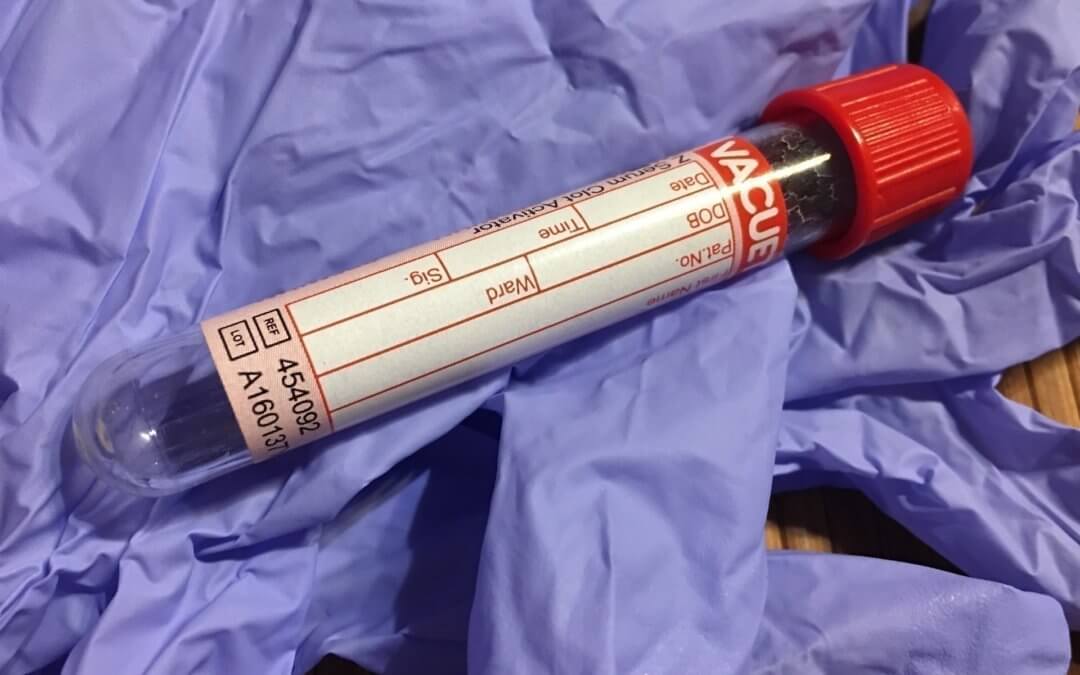Blood and urine tests are an essential part of good veterinary medicine and can be critical when diagnosing and managing diseases.
Blood tests
Blood tests can give us a wealth of information about the health of your pet. They provide an insight into the health of many organs, help detect disease and can also confirm if your pet is safe to undergo anaesthesia.
From a blood test, we can work out if your pet is dehydrated, has underlying kidney disease or liver changes, and assess your pet’s red and white blood cells. All of this helps improve the level of care we can provide to your pet.
Most blood samples are taken from the jugular vein in the neck. This vein is large enough to provide a good sample and allows us to collect the blood as quickly as possible. This is important as blood will start to clot if it is not collected swiftly and this can affect the results.
Most pets are also more relaxed when blood is taken from their jugular vein and there is minimal, if any discomfort. If necessary, a smaller sample can be obtained from a vein in the leg but these veins are preferably ‘saved’ for administering injections or IV fluids.
Once the blood has been collected we place pressure over the vein to prevent any bruising. Your pet should not require a bandaid but a liver treat (instead of a lollipop) is a must!
The blood is placed into tubes appropriate for required tests. Some tests can be run on machines we have in house but there are certain tests that require more extensive equipment and so the blood sample is sent to an external laboratory.
Urine tests
It’s not only blood tests that give us an insight into the health of your pet. Testing your pet’s urine is another essential part of good veterinary medicine. A small amount of urine can give us information about your pet’s internal health, and rule out problems such as kidney disease and diabetes.
As part of a routine urine test, we usually test how concentrated your pets urine is. This gives us an idea of how well your pet’s kidneys are working. We may also test for the presence of blood, look at pH, protein levels and glucose and even spin the urine down to form a sediment to look for bacteria and crystals. Sometimes it is necessary to send your pet’s urine to an external laboratory for testing (such as for deciding what antibiotics are appropriate if a bacterial infection is present.)
Collecting urine at home can be a bit overwhelming and we will be able to advise you on the most suitable technique for your pet. If you don’t succeed at home we routinely collect urine from pets using a very small needle (a painless and quick procedure.) This routine procedure is called a cystocentesis and is necessary if we need to collect urine without contamination.
We will advise you if your pet needs an urinary test but remember, if you think your pet’s urination habits have changed it is best to phone us for advice.






